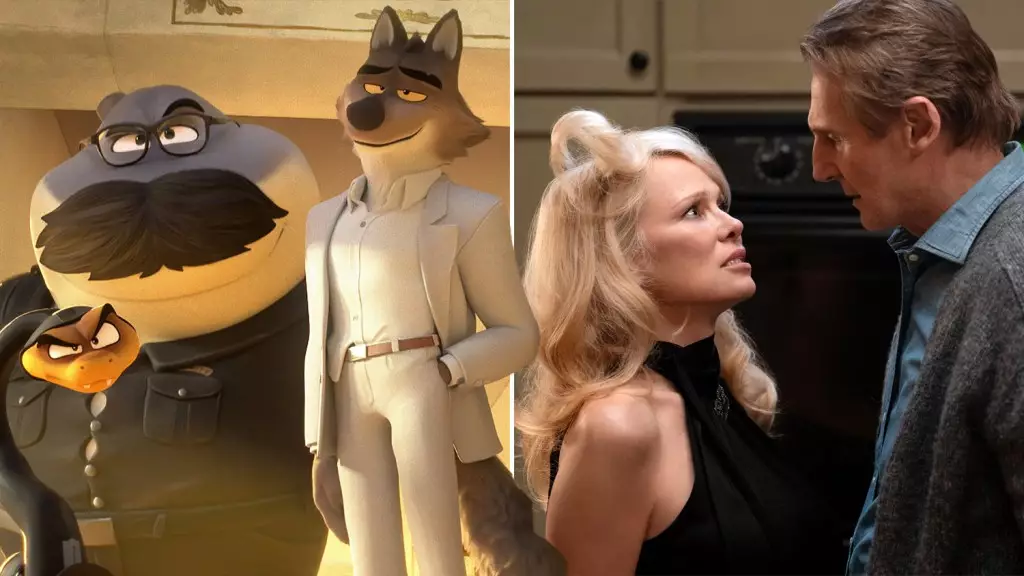In recent years, the film industry’s reliance on opening weekend figures as a barometer for success has become problematic. Studios often trumpet initial ticket sales, but these figures can be deceptive when taken in isolation. The latest box office reports reveal a paradox: while blockbuster sequels like “The Bad Guys 2” and Marvel’s “The Fantastic Four” manage to secure sizeable opening figures, these numbers often mask deeper issues such as lack of audience engagement and declining theatrical appeal. A closer look demonstrates that these inflated early weekend numbers do not necessarily translate into sustained revenue or long-term franchise health. This misdirection benefits studios’ marketing strategies but doesn’t address the fundamental problem—audiences are increasingly skeptical of Hollywood’s blockbuster obsession with spectacle over substance.
The Flawed Strategy of Franchises and Frivolous Reboots
One of the most glaring signs of the industry’s disconnect from its audience is the overreliance on rebooting, remaking, and franchising. The attempted revival of classics like “The Naked Gun” and the continuation of Marvel’s cinematic universe focus more on brand recognition than authentic storytelling. This approach, though financially tempting, risks alienating viewers who crave originality and meaningful narratives. For example, despite “The Naked Gun” reboot’s critical praise and decent audience scores, its modest opening suggests that reheated nostalgia cannot substitute for genuine creative effort. Hollywood’s fixation on leveraging established IPs demonstrates a failure to evolve and listen to the needs of its core audience—those who seek compelling, innovative content rather than recycled material.
The Audience’s Growing Disenchantment: Quality Over Quantity
Critical reviews and audience scores further highlight that today’s viewers are discerning and less willing to accept mediocrity wrapped in flashy packaging. Movies like “Together” and “No Hard Feelings” demonstrate that comedy, long a staple of Hollywood’s financial strategy, is struggling unless it offers fresh, sharp humor that resonates with contemporary sensibilities. The high critic scores for “Together” contrast sharply with its modest box office, illustrating that even positive reviews cannot overcome the wider perception of Hollywood’s diminishing originality. Audience apathy is compounded by ticket prices that continue to rise, turning what used to be affordable entertainment into a luxury. The industry’s failure to produce engaging content that can foster word-of-mouth support guarantees that box office profits will remain unreliable.
The Myth of the Blockbuster’s Financial Triumph
Many stakeholders wrongly believe that launching a blockbuster with a hefty price tag ensures profitability. Films like “The Fantastic Four,” with its $200M budget, are expected to pull in enormous numbers, but the reality is more sobering. The projected second-week decline of 61% reflects a broader trend: initial interest often fades fast when a movie fails to deliver genuine excitement or emotional engagement. The pandemic era has exacerbated this instability, making audiences more selective and less loyal. Studios need to confront the fact that the “big-budget, high-profit” myth is increasingly unsustainable. Success derives not solely from overwhelming opening figures but from sustainable audience investment—something Hollywood has seemingly forgotten in its quest for blockbuster dominance.
What Hollywood Must Do to Reestablish Credibility
To truly revive the movie industry, studios must shift their focus from short-term hits to long-term relevance. This entails investing in original storytelling, diverse narratives, and authentic characters that resonate with modern audiences. Streaming platforms have proved that there is a pent-up demand for quality content, and theaters need to adapt by offering experiences that cannot be replicated at home. Moreover, a concerted effort to lower ticket prices, improve movie quality, and foster genuine cultural conversations can help rebuild trust. Hollywood’s obsession with franchises and shallow reboots not only disillusions viewers but also destroys the industry’s reputation as a creative powerhouse. If studios insist on chasing short-lived spectacle at the expense of storytelling integrity, their financial gains will continue to dwindle, and their cultural influence will further decline. The path forward involves reinvigorating genuine filmmaking and respecting the intelligence of audiences—without them, the future of cinema remains bleak.

